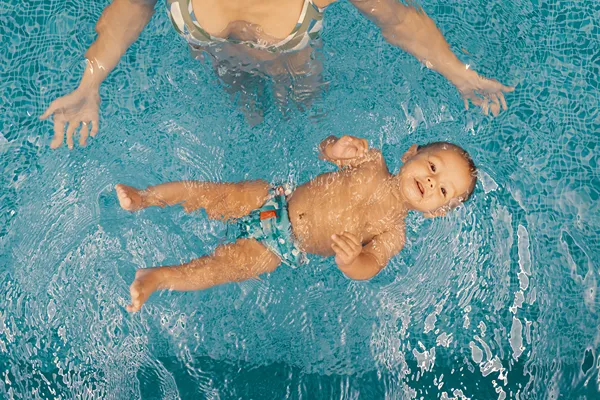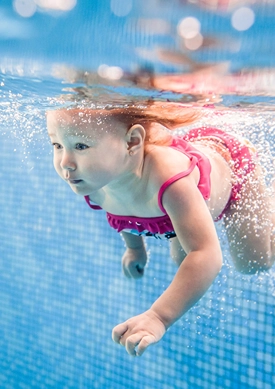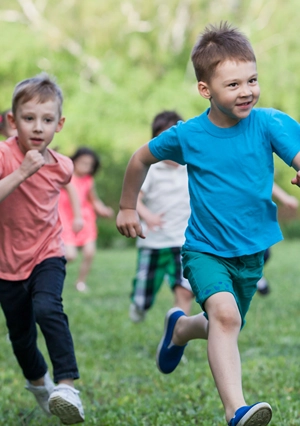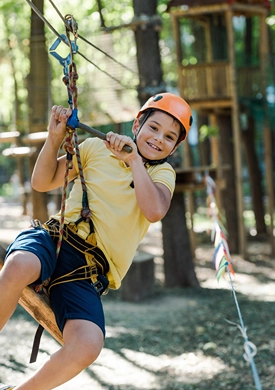What You Need to Know About ISR Infant Swimming Resource™ Classes for Babies and Toddlers
Since its founding in 1966 by Dr. Harvey Barnett, Infant Swimming Resource™ (ISR) has pioneered a revolutionary approach to infant and young child water safety. Parents may feel overwhelmed when considering swim lessons for their young children. Many parents have questions about timing, readiness, and safety— you’re not alone!
If you’re considering swimming classes for your infant or toddler, you’ll want to understand what to expect so that your child will have the best possible experience and outcome.
Set Your Child Up for Success With Our ISR Infant Swimming Resource™ Tips
From preparing for the first session to understanding the skills your child will learn, here’s what you need to know to empower your child with life-saving abilities–while building their confidence and ensuring safety in the water.
Understanding the ISR Infant Swimming Resource™ Journey
Beginning swimming will look different for every family. While some families seek lessons after a close call with water, others proactively prepare their children for water safety and to enjoy the lifelong benefits of becoming a confident swimmer.
Whatever your motivation may be, ISR’s infant swimming program is a proven method that provides a structured path to essential water survival skills.
The ISR approach is built on 50 years of research, development, and experience, which have resulted in proven techniques and 19 million safe and effective lessons.
At its core, the program continues to recognize the other safety measures put into place to keep children safe, such as pool fences and supervision. Equipping children with essential survival safety skills is another layer of protection.
ISR Program Structure

Every aspect of ISR’s program structure is intentionally designed to optimize learning and ensure safety.
The following elements work together to create an effective learning environment.
- Private, one-on-one lessons
- 10-minute sessions
- Monday-Friday schedule
- Typically, 5-7 weeks for skill mastery
- Customized progression based on individual development
This carefully planned structure allows children to progressively build skills while maintaining energy and enthusiasm. The short, frequent lessons perfectly match young children’s attention spans, making each swim session a productive and positive experience.
Age-Appropriate Infant and Toddler Swimming Skills
Children’s abilities and developmental stages vary significantly in their early years.
ISR’s program adapts to these differences, providing age-appropriate instruction for each stage:
For infants (6-15 months):
- Learning to roll onto back
- Floating independently
- Maintaining airway position
- Building water confidence
As babies master these foundational skills, their confidence grows alongside their abilities. Parents often report amazement at their young child’s progress.
For Toddlers (15 months to 4 years):
- Swim-Float-Swim sequence
- Independent propulsion skills
- Proper breathing techniques
- Safety-based swimming skills
These advanced skills build naturally upon the infant foundation, creating a comprehensive set of water survival skills.
Preparing for Your Little One’s First Swim Classes
The success of ISR infant swimming lessons often depends on proper preparation. Many parents find that establishing routines before lessons begin helps their child adjust more quickly to the program.
Before You Start
Creating the right conditions for learning starts well before your child enters the pool.
Consider these essential preparation tips for their first infant swimming class:
- Schedule lessons at consistent times
- Maintain regular sleeping patterns
- Follow proper feeding guidelines
- Have appropriate swimwear ready
- Arrive early to avoid rushing
Taking these preparatory steps helps ensure your child arrives ready to learn and comfortable in the new environment.
What to Bring
- Multiple swim diapers
- Warm towels
- Change of clothes
- Positive attitude
- Any required medical information
What Happens in ISR Infant Swimming Classes?
Each 10-minute lesson is carefully structured to maximize learning while ensuring safety. “Our son is calm and happy in the water and has shown so much improvement and growth,” shares one parent. “Our daughter loves going to lessons and has become such a strong swimmer!”
Lesson Progression
- Initial assessment of skills and comfort level
- Introduction to basic water safety concepts
- Progressive skill building
- Reinforcement of learned techniques
- Regular evaluation of progress
Safety Protocols
- Constant instructor supervision
- Temperature-controlled environments
- Regular rest periods
- Monitored breathing patterns
- Progressive skill advancement
Remember that every child’s journey is unique. While some adapt quickly to the water, others may need more time to build confidence. The key is maintaining consistency and celebrating each small victory along the way.
Parent involvement is crucial for successful ISR Infant Swimming Resource™ lessons.
At-Home Support
- Maintain consistent schedules
- Practice verbal cues
- Reinforce water safety rules
- Celebrate progress
- Stay positive and patient
Between Lessons
- Regular sleep schedules
- Proper nutrition
- Avoid exhausting activities
- Monitor health and energy
- Communicate with instructors
Common Questions About ISR
Program Duration
Most children master the basic ISR skills in 5-7 weeks of consistent lessons and receive a certificate of completion at the end of this duration. However, many families choose to stay on for maintenance lessons because the children build on their skill sets and have improved muscle memory because of the consistency of practice.
Progress Expectations
Each child progresses at their own pace, but the program’s structure means that children who attend lessons consistently will acquire skills faster and continue to advance.
As one parent shares, ‘We enrolled our daughter in the ISR classes when she was around 7 months and she quickly learned and passed her assessment. We have been doing weekly maintenance classes for the past several months and I am so pleased with her results. She loves the pool and is understanding the concept of swimming. Most importantly, I know she is safe when we are near the water.’
Safety Considerations
ISR considers a multi-layer defense approach against aquatic accidents, including:
- Pool fences and barriers
- Proper supervision
- Alarm systems
- Self-rescue skills
- Ongoing education
Building a Foundation for Water Safety
ISR’s comprehensive approach recognizes that while traditional safety measures are essential and necessary, the child’s ability to self-rescue is crucial to reducing the risk of drowning.
The ISR program has documented hundreds of survival stories demonstrating that children can and do save themselves when given the proper training and practice.
Long-Term Benefits
- Lifelong water safety skills
- Increased confidence
- Strong swimming foundation
- Enhanced water awareness
- Family peace of mind
Ongoing Development
Even after completing the initial 5-7 week program, children can benefit from:
- Refresher lessons
- Skill maintenance
- Advanced techniques
- Regular practice
- Continued water safety education
Making the ISR Decision
When considering ISR infant swimming lessons, remember: you’re not just enrolling your child in swimming lessons— you’re investing in potentially life-saving skills.
The program’s structured approach, combined with its proven track record of over 450,000 successful graduates, ISR’s provides children with the tools they need to be safer in and around water.
Ready to begin your child’s ISR journey? Discover how certified ISR instructors can help your child develop essential water survival skills when you look for a comprehensive ISR Infant Swimming Resource™ program near you.








